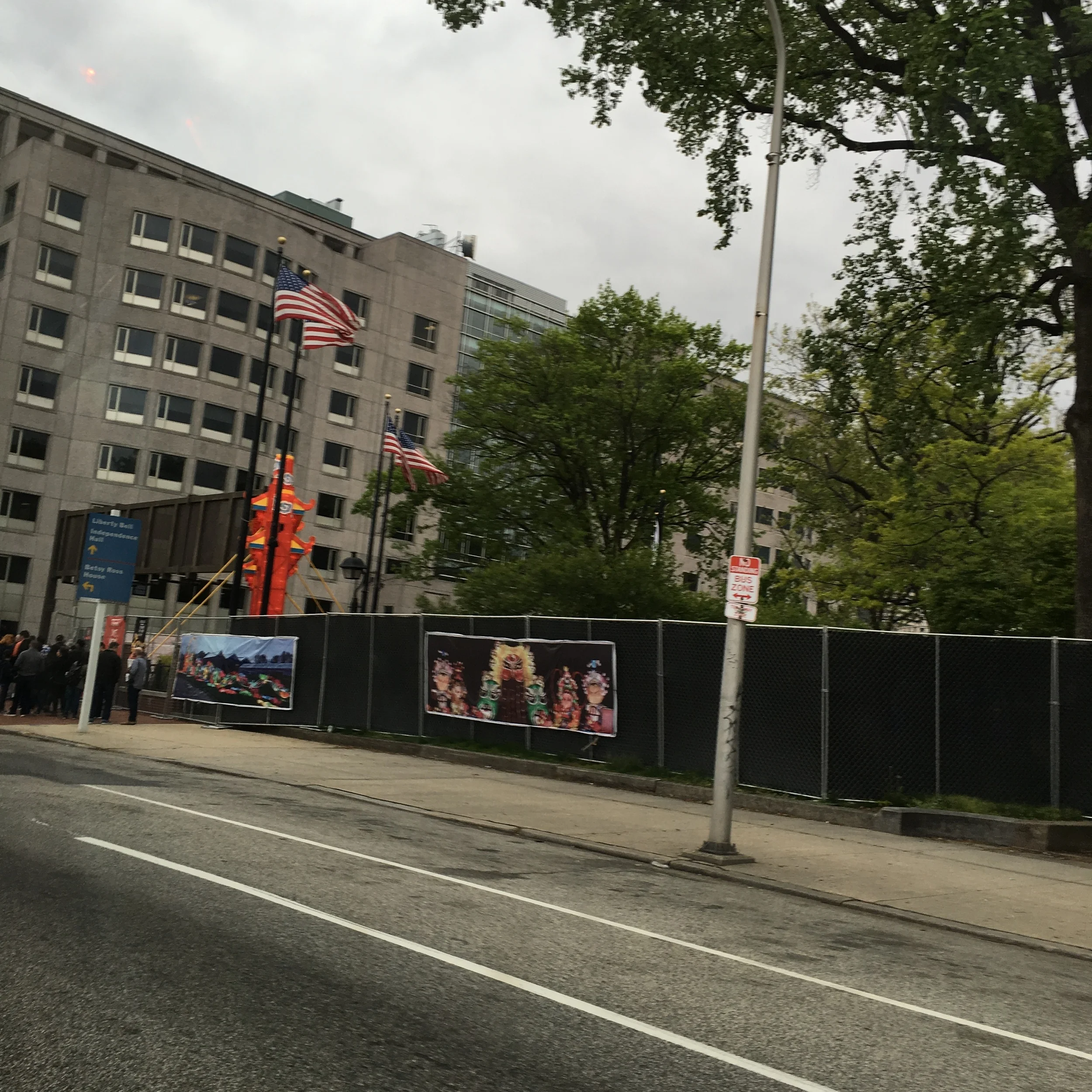THE RECLUSE OF FRANKLIN SQUARE
BY CHRISTOPHER MORLEY
Essay first published in The Philadelphia Public Ledger, circa 1918.
Who can describe the endless fascination allurement and magic of the city? It is like a great forest full of enchantment for the eye and ear. What groves and aisles and vistas there are for wandering, what thickets and underbrush to explore! And how curious it is that most of us who frequent the city follow only little-beaten paths of our own, rarely looking round the corner or investigating (in the literal sense) unfamiliar byways? We tread our own routine, from terminal or trolley, to office to the customary lunching place, back to the office and home. Year after year, we do this until the city is for us nothing but a few tedious streets we know by heart.
But how dull it is to be confined to one life, one habit, one groove of conduct? Do you ever pine to shed the garment of well-worn behavior to wander off into the side paths of the city to lose yourself in its great teeming life? The thought is fascinating to me. I like to imagine myself disappearing one day from my accustomed haunts, slipping away into some other quarter of the town, taking up entirely new habits and environment. Ah, that would be an adventure!
I think I would emigrate to Franklin Square which, after all, is only a few blocks north of the territory where I oscillate every day; but it seems almost like a different continent. I would go up to Franklin Square, take a room at one of those theatrical lodging houses on the western side of the square, grow a beard, wear a wide sombrero hat and keep my pockets full of sweetmeats for the children of the square. In the course of a few months, quite a legend would accumulate about me. I would be pointed out as one of the characters of the neighborhood. Newspaper reporters would be sent to interview me. Then I would shave and move on to some other home.
Franklin Square is a jolly place on a warm day. There are red and pink geraniums round the pool in the middle. There is the drowsy whirr and hum of lawn mowers. There is a sweet dull air moving gently across the wide grass plots; the flag waves heavily on the tall staff. There is a whole posse of baby carriages gathered together in a shady patch of pavement, with usually one small girl left to "mind" them, while the other little guardians are sprinkling themselves with water at the stand pipe or playing hopscotch in the sun. You mind my baby and I'll mind yours is the tacit understanding of these ragged little damsels. But really, it is surprising how little minding the Franklin Square babies seem to need. They lie in their carriages, furling and unfurling their toes with a kind of spartan restraint. They refuse to bawl or to hurl themselves upon the paving below because they know that their young nurses are having a good time.
Franklin Square policemen are stout and very jovial. An Italian woman was sitting on a bench opposite mine; she had a baby on her lap, one leaning against her knee, three sitting on the bench with her, and two in the carriage. Seven in all, and I gathered from her remarks that six of them were boys. "Quite an army!," said the stout policeman passing by. Her face gleamed with the quick pleasure of the Latin race. "Ah yes," she said, "Italians good for boys!"
On the west side of the square are the theatrical boarding houses where ladies with very short skirts and silk stockings air little fuzzy white dogs that just match the soiled marble steps. Midway in the row is a bulky chocolate colored church, Deutsche Evang. Luthcrische, according to its signboard. Gottesdienst Morgens 10:45, Abends 7:30. It is well for us to remember that God is worshiped in all languages. And up at the little news stall at the corner of Vine street, the literary and dramatic leanings of Franklin Square seem to be reflected in the assortment of paper backed volumes on display: The Confessions of an Actress, The Stranglers of Paris and Chicago by Night are among the books there; also some exceedingly dingy editions of Boccaccio and Napoleon's Dream Book. I could learn a good deal, I am sure, by studying those volumes.
Franklin Square is full of color. The green spaces are islanded in a frame of warm red brick. The fountain bubbles whitely, the flag is an eager spot of brightness on the tall white mast. Shop windows seem to display a broader, more lilting kind of poster than they do on Market street. There is one on a by-street representing a young man blowing heart-shaped smoke rings, and a glorious young woman is piercing them with a knitting needle or some other sharp instrument.
I don't know just what I would do for a living on Franklin Square. The only thought that has occurred to me is this: some one must have to look after those little white dogs while their debonair mistresses are at the theatre. Why couldn't I do that for a modest fee? I would take them all out at night and tow them through the fountain pool. It would serve to bleach them
Another thing I could do, which I have always wanted to do, would be to decipher the last line of the small tombstone that stands over the pathetic grave of Benjamin Franklin's little son. That is not far from the square. The stone reads, as far as I can make it out, "Francis F Son of Benjamin and Deborah Franklin Deceased Nov 21 1786 Aged 4 years." The number of months and days I can't make out, nor the last line of thr epitaph, which begins with the sadly expressive word "Delight." It is much effaced, and without squatting on Ben Franklin's tomb I can't read it. And as there are usually some young ladies sitting knitting on the bench by the grave, I am too bashful to do that. But if I lived in Franklin Square, I would find a way somehow.
But much as I love it, I doubt if I could live in Franklin Square long. There is an air of unrest about it, of vagabond whimsy. The short skirted ladies would come and go, and sooner or later, the bearded recluse with his pocket full of candy and his sombrero hat would disappear, and only the children would lament his going. For I know that if I were a wandering blade, I could never resist a summons like this, which I found posted up just off the square. Here speak Romance and Adventure with golden lute:
MEN WANTED TO TRAVEL
WITH R____' S CIRCUS
A CHANCE TO SEE THE COUNTRY
EXCELLENT BOARD AND COMFORTABLE SLEEPING CARS
PROVIDED BY THE MANAGEMENT
Born at the tail end of the 19th Century and raised in Bryn Mawr, the essayist and novelist Christopher Morley was a columnist for the Philadelphia Evening Public Ledger before going on to pen classics like The Haunted Bookshop and Kitty Foyle. He died in 1957.




